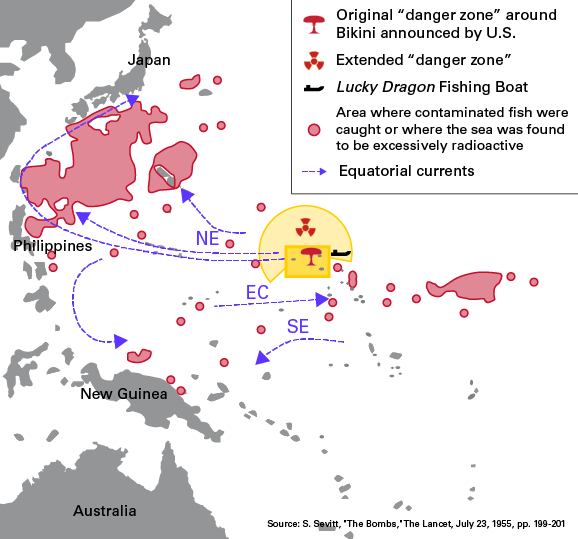Negotiators Push to Narrow Gaps with Iran
On the radar: Talks continue; Sanctions hawks unappeased; Nuclear waste legacy lingers; Nukes in the NDAA; Rouhani’s outlook; Stuxnet was much more complex than generally thought; and Remembering JFK.
On the radar: Talks continue; Sanctions hawks unappeased; Nuclear waste legacy lingers; Nukes in the NDAA; Rouhani’s outlook; Stuxnet was much more complex than generally thought; and Remembering JFK.
November 22, 2013 | Edited by Benjamin Loehrke and Geoff Wilson
Closing the Gaps - The second day of high level of nuclear talks broke for the night in Geneva Thursday, “with Iranian and western negotiators saying progress was being being made in narrowing gaps, but four or five issues still remain to be resolved and need more time.” Talks are set to continue Friday and are likely to extend into the weekend. Laura Rozen has the full story for Al-Monitor. http://bit.ly/I7NOsD
Outlook - “Iran, six powers struggle to overcome snags in nuclear talks” by Louis Charbonneau and Parisa Hafezi of Reuters. http://reut.rs/1bXVyrS
Background and perspective “A Realistic, Meaningful First Phase Nuclear Deal With Iran.” Issue brief from the Arms Control Association. http://bit.ly/I4taJe
Sanctions in the wings - “A bipartisan group of more than a dozen senators vowed on Thursday to craft a new set of sanctions on Iran… sometime after the Thanksgiving holiday, when it will be clear whether Secretary of State John Kerry can strike a deal with Iran over scaling back its nuclear program.” Burgess Everett has the story for POLITICO.http://politi.co/18rYsUT
Nuclear legacy - “One Town's Atomic Legacy: A $500 Million Cleanup Quarter-Century Crusade to Force Government Cleanup of Radioactive Contamination.” John Emshwiller profiles one woman’s fight to clean up nuclear waste from a former nuclear submarine fuel factory outside of Pittsburgh. Full article in The Wall Street Journal. http://on.wsj.com/1aMkIbH
The missing uranium - In the mid-1960s, some 200 lbs of highly enriched uranium disappeared from the above submarine fuel plant - the Nuclear Materials and Equipment Corp. The mystery of the missing uranium has not been solved. The company blamed it on production losses. The FBI and NRC looked into the issue. There is speculation that the material could have been diverted and used in Israel’s nuclear weapons program. John Emshwiller has the full story in The Wall Streeet Journal. http://on.wsj.com/Ik3Wqe
Nukes in the Defense Bill - Here’s a quick list of nuclear weapons-related amendments submitted for the Senate defense authorization bill. Expect a lot of changes to amendments offered, their text, their numbers and the overall fate of the defense bill in the Senate.
--S.Amdt.2468: Seeks an update of cost estimates for SSBN(X) submarine program alternatives. offered by Sen. Markey (D-MA) and Sen. Wyden (D-OR). http://1.usa.gov/18tF5L8
--S.Amdt.2453: Declares a sense of Congress that further nuclear reductions should come through a treaty. offered by Sen. Lee (R-UT) and Sen. Fischer (R-NE). http://1.usa.gov/Ik1gJe
--S.Amdt.2154: Seeks to block modification of B-52 bombers for compliance with New START until SECDEF submits a report. Offered by Sen. Hoeven (R-NE). http://1.usa.gov/17Uf2cm
--S.Amdt.2176: Requires a report on INF treaty compliance. Offered by Sen. Risch (R-TX) and a whole bunch of Republicans. http://1.usa.gov/1bXQKTd
--S.Amdt. 2338 and 2339: Declaring a sense of Congress that delays to the B61-12 life extension program would be bad. Offered by Sen. Corker (R-TN). http://1.usa.gov/I7XrHv
Rouhani - Iranian President Hassan Rouhani’s “focus appears to be on using the momentum created by his electoral victory to end the stalemate in nuclear negotiations and revive Iran’s anemic economy. A foreign policy victory could help him consolidate his power and deal with rival power centers on social issues from a position of strength,” write Yasmin Alem and Barbara Slavin in a new report on the Iranian leader’s first 100 days.
--”Rouhani’s failure to secure a nuclear agreement and resuscitate Iran’s ailing economy could dash his supporters’ hopes and deprive him of the Supreme Leader’s essential backing. Under such circumstances, the Rouhani government would have to adopt more hardline policies to survive the remainder of its term. This is a prospect neither in the interest of the United States, Iran, or the international community.” Full report from the Atlantic Council. http://bit.ly/1aVIlLD
--Report: ”Rouhani’s First One Hundred Days: Cautious Domestic Reforms as Nuclear Crisis Continues” by Yasmin Alem and Barbara Slavin. White paper for the Atlantic Council. (pdf) http://bit.ly/I84hNh
Stuxnet “Stuxnet's Secret Twin: The real program to sabotage Iran's nuclear facilities was far more sophisticated than anyone realized.” By Ralph Langer for Foreign Policy. http://atfp.co/1aMpsxV
Reductions and budgets - There is “plenty of room” to reduce U.S. strategic nuclear force levels below the levels of New START while maintaining a strong triad and, potentially, saving money, writes Steven Pifer for Brookings’ Up Front blog.
--”If defense budgets are going to drive the United States invariably to lower strategic force numbers, locking in arrangements that ensure that America’s nuclear peer also reduces offers one more compelling argument for nuclear arms control,” adds Pifer. http://bit.ly/18tN1fq
Speed reads:
--“Let’s Make a Deal” by Thomas Friedman in The New York Times. http://nyti.ms/17oxKvv
--”CNN Poll: More Than Half Back Iranian Nuclear Deal.” From CNN. http://cnn.it/1e88wTr
--”What Would the Gipper Do About Iran” by Paul Pillar in The National Interest. http://bit.ly/1aVFxOu
Events:
--”Rethinking U.S. Nuclear Weapons Policy.” Discussion with Benjamin Friedman, Christopher Preble, and Laura Odato at B-369 Rayburn House Office Building. Nov. 25th at 12:00pm. http://bit.ly/1bVpEKg
John F. Kennedy - While the nation remembers President John F. Kennedy on the 50th anniversary of his death, take some time to reflect on one of his most enduring legacies - the pursuit of peace and the elimination of nuclear threats.
--“It makes no sense in an age when the deadly poisons produced by a nuclear exchange would be carried by wind and water and soil and seed to the far corners of the globe and to generations yet unborn. Today the expenditure of billions of dollars every year on weapons acquired for the purpose of making sure we never need to use them is essential to keeping the peace. But surely the acquisition of such idle stockpiles--which can only destroy and never create--is not the only, much less the most efficient, means of assuring peace.
--”I speak of peace, therefore, as the necessary rational end of rational men. I realize that the pursuit of peace is not as dramatic as the pursuit of war--and frequently the words of the pursuer fall on deaf ears. But we have no more urgent task.” - John F. Kennedy, June 10, 1963. http://bit.ly/19091Nc


